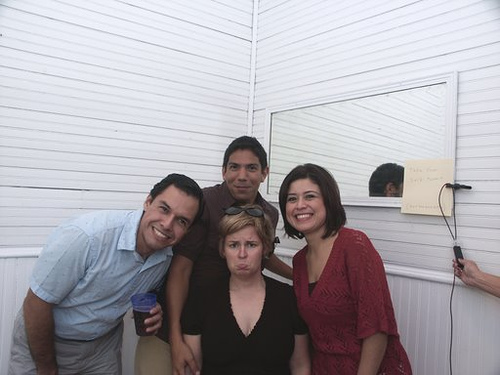
Since I started this blog more than two and a half years ago-actually, no, since long before that-I’ve been quietly searching for the perfect state of mind, the way of thinking or being that would make willpower simple. It always struck me that people sometimes go through experiences that affect them so much that their actions are completely different from that time forward, even though all that changed was their thoughts.
I was talking to an acquaintance the other day about her father. He’s been a diabetic for decades, but he never really got into the habit of checking his blood sugar regularly. It’s hard to blame him: who wants to draw their own blood twice a day for life? A few days ago, though, he called his daughter on the phone and told her something was wrong. His speech was slurred, he couldn’t stand up, and his daughter feared he was having a stroke. She called an ambulance.
The paramedics were able to rule out a stroke, and it turned out that the problem was just that the amount of insulin her father was taking was off. He should have been testing his blood sugar so that his doctor would know if it was getting too low (in this case it was much too low-a little lower and it would have sent him into a coma) and be able to adjust things accordingly.
You might not be surprised to know that my friend’s father is now checking his insulin religiously. Poking yourself with something sharp every once in a while suddenly stops feeling like so much of a nuisance if it’s going to prevent you from collapsing on the floor and going into a coma.
What does this have to do with willpower? Well, I’ve always wondered. On the one hand, I’ve thought, maybe it’s possible to jar ourselves into that state of complete dedication to making the smart choice, over and over again, in the same way my friend’s father was jarred. On the other, maybe that only applies to really traumatic experiences.
A little more background we’ll need to make sense of this topic: I’ve never had a friendly relationship with food. I’m one of four kids, raised in a household where the food budget was sometimes very tight. The kinds of food we liked weren’t always easy to come by, so if something was served that we considered especially good, we’d scarf down our first portion to get seconds before it was all gone. In this and other ways, we all learned some bad ways of dealing with and thinking about food, and for me this has been an issue into adulthood. I was unhappily overweight for years, gradually gaining mass, until about seven years ago, when I finally understood about exercise. I’d always thought it was something that you tried to put up with: I had never realized that exercise could be something you crave, and yet regular exercise made that transformation for me, and with that change along with some hard work to eat better, I eventually lost more than 60 pounds.
Over the past six months or a year, though, I hadn’t been bothering as much about fitness, having family matters to deal with that were a more important place to put my time and attention, and recently I realized I had started putting weight back on. The idea was very unappealing to me, as you can probably imagine, and I focused on the problem to piece together what I knew about willpower so that I could find a state of mind where I didn’t just eat well, but craved eating well-just like I crave exercise. I may have found it, but it’s not as simple as I once imagined it might be. I wasn’t scared into changing my life. Instead, I began looking at things in a different way. In my next post, I’ll talk about what that change of attitude was and how to get to it.
Photo by Chris Rimmer






